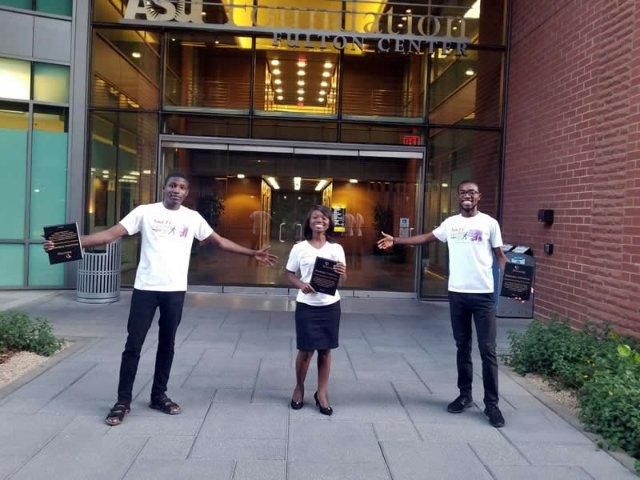Meet the 3 young Ghanaians bridging ICT gap for children in rural Ghana
)
A trio of young Ghanaians have launched a project aimed at bridging the gap between urban and rural children in Ghana when it comes to ICT.
Golda Afoakwa, Richard Sewor, and Douglas Amoo-Sargon are all students of Arizona State University in the United States (US).
The three are bent on improving computer literacy among rural Ghanaian children with their project dubbed, “Sua IT”.
Their plan is to travel to some rural areas in the country to assist children over there acquire ICT skills.
In 2018, Sua IT won the Resolution Social Venture Challenge – a competition that rewards compelling leadership and promising social ventures led by youth.

As winners, they were given seed funding, mentorship, and access to a network of young global change-makers to pursue impactful projects in their communities back home.
This is in collaboration with The MasterCard Foundation and The Resolution Project, which see to support youth leaders who aim to create change in deprived societies.
The Sua IT project is expected to benefit between 1,000 and 1,500 children in rural areas every year to catch up with their counterparts in urban communities when it comes to ICT.
The target, the founders said, is to visit at most four schools per year.
The team will be sending laptops, textbooks, a projector, a generator, and other gadgets to these rural areas, as part of the project.
“Most children in rural communities in Ghana do not get practical knowledge in ICT. The urgency for which these children must gain such knowledge has been clearly stated in the government’s ICT syllabus as an important and basic tool needed by every child in Ghana. However, we see most children not having such privilege,” Golda Afoakwa said.
“We want every rural Ghanaian teenager to comfortably use technological products. We also want them to benefit from the internet by exposing those students to global and societal issues, as well as encouraging them to develop solutions to the challenges they’ve observed in their community,” she added.
)
)
)
)
)
)
)
)
)
)
)
)
)
)
)